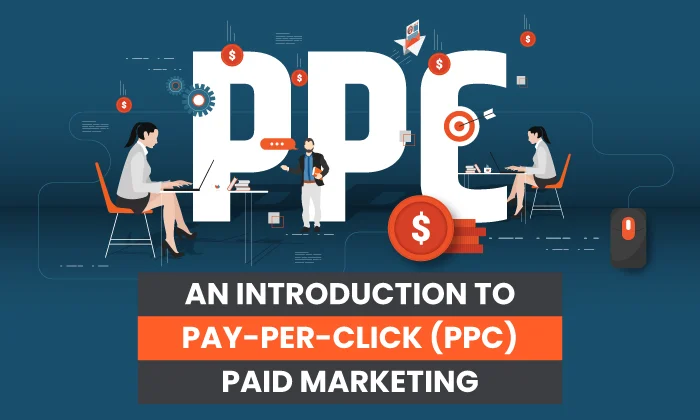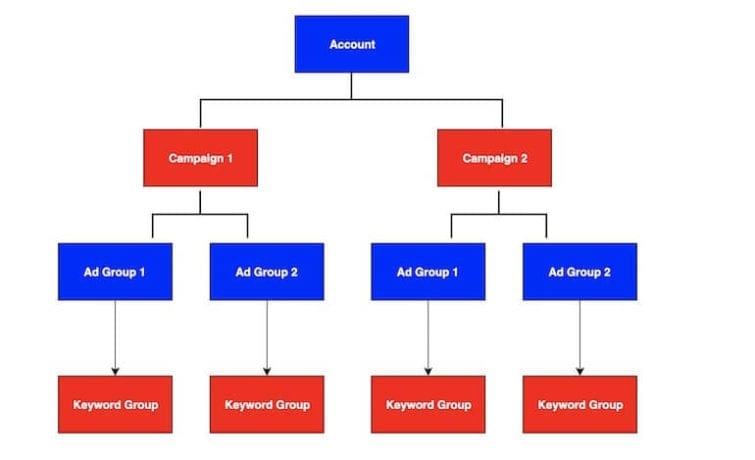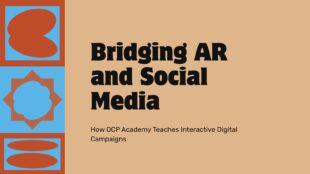
Facebook
Twitter
LinkedIn
Pinterest
Telegram
WhatsApp
Email
Print
What is paid search (PPC), and why do you need it?

Are your businesses online? If you want to know what is paid search marketing and why you need it, read below. This article will help you understand the basics of paid search, as well as some of the benefits it has to offer.
What is paid search marketing?
Paid search marketing is the practice of bidding on keywords and phrases to place an ad in ad spaces on search engine results pages (SERPS).
Companies use paid search strategies to increase brand visibility, gain exposure, and drive website traffic. Search engine marketing (SEM) refers to paid search advertising only. SEM includes paid listings on both the search engine results page (SERP) and within sponsored or merchant-provided content.
The paid search marketing is entirely driven by google Adwords which is the world’s largest online advertising platform. This platform helps brands to connect with targeted audiences through text, image or video ads.
What is paid search marketing?
Paid search marketing is an effective strategy for building brand awareness and increasing traffic to a company’s website. Paid search marketing can drive users to websites, improve brand recognition, and increase sales by developing brand loyalty.
PPC allows companies to target only the people most likely to buy their products or services, based on demographic and psychographic information, with minimal cost.

Here are some additional benefits of using paid search campaigns and online marketing.
Cost-effective: An advertising campaign in a highly competitive market can achieve profitability with the right keywords.
Convenient: Because paid search marketing is an online multi-channel marketing tool, the cost-per-click can be controlled to be optimally profitable.
Target audience: Using paid search marketing, companies can target their advertising to their key customers or prospects.
Relevance: It is virtually guaranteed in paid search campaigns since the users themselves select the keywords.
Brand visibility: Paid search marketing enables companies to reach their target audience, which becomes aware of them through advertisements.
Lead generation: Since users may be found via ad clicks, there is a possibility that these people will also become customers. These leads are also referred to as “direct-response leads.
How does paid search marketing work?
Paid search marketing is a Cost per Click (CPC) model, meaning advertisers pay every time a user clicks on their paid search advertising. Whether an advertiser wins the ad position, they are charged for each click.
When users search for a keyword or phrase relevant to an advertiser’s product or service, an advertisement appears on the top or right side of the SERP.

Steps to set up your PPC campaigns:
Some important steps you need to follow to set up your paid search campaign.
1. Location settings:
You need to set up where you want your ads to be displayed. By default, Google will automatically show your ads in different locations, such as country, state, city, and neighborhood.
2. Campaigns:
You need to define the keywords that you want in your campaign. There are two types of campaigns: Search Networks and USP (Universal Search Platform).
3. Keywords:
Keywords serve as the basis for your AdWords campaigns. The right keyword is important for ranking high, as search engines like Google and Yahoo are flooded with billions of advertisements daily.
4. Budget:
There are different plans available. Depending on your budget, you can either set a limit on your daily spending or opt for a monthly plan that will allow you to spend as much money as you want during a time period specified by Google.
5. Settings:
This is the most important step for all users, as every setting has a major impact on your paid search campaign. Here are some of the settings that you need to set up.
6. Create your ad:
Once you have created your campaign, you need to create your ad. You can use the editor or a module in Google AdWords to create and save your ad. You can also set up your custom landing page.
7. Bids:
Choose your bid from the drop-down menu. Note that the bid is the amount you are willing to pay for each click on your ad.
8. Ad extensions:
Decide whether you want to share your ad with Google Display Network on two lines or use the AdSense ad network to promote your business.
9. Ad launch and payment:
You can launch your ad by clicking on the “Launch” link in your campaign’s Settings tab. Once you create a campaign and an ad, Google will review your ad, and if it is approved, the ads will enter pending status. It usually takes less than 24 hours for your campaign to be launched. Once it is launched, you can see your ad’s number of impressions and clicks.
10. Advanced settings:
These advanced features allow you to continue optimizing your campaign by setting up dynamic keywords, keywords suggested by Google, and managing negative keywords.
How do search engines determine ad rankings?
As search engines have billions of websites that must be ranked according to relevance and quality, automated processes are used to rank the sites. However, this is not a mere automated process. According to Google, its search engine results are sorted by humans, not machines.
An automated system is used to detect spammy sites to ensure the quality of the search results on Google. Furthermore, a team of expert reviewers checks manually if any suspicious site should be removed from the SERPs (Search Engine Results Page).

Final words:
It is important to understand that all ads are not created equally, and some will perform better than others. You can experiment with different ad copy, ad location, and landing page content to see what works best for your PPC campaign. For more information, you can contact us on our Twitter handle. Learn from here:
DIGITAL MARKETING INTEGRATED SIMULATION & CERTIFICATION PROGRAM
DIGITAL MARKETING INTEGRATED SIMULATION & CERTIFICATION PROGRAM
Related Resource
What’s Holding You Back From the Career You Deserve – Could It Be a Lack of OCP Academy’s Expertise?
June 13,2025 / AI in Marketing Career & Placement Career Advice Career Development Career Guidance Career In Digital Marketing ChatGPT Client Management Client Relationship Management Content Marketing Content Marketing Insights Content Strategy Digital Marketing Foundation Digital Marketing Freelancing Business Digital marmeting Digital Skills Training Digital Transformation E-Commerce & Online Services E-Commerce Management E-Learning Education Education & Learning Email Marketing Techniques Emerging Technologies for Digital Marketing Engineering Business Film Industry Film Industry Insights Film Marketing Freelancer Marketing Tips Freelancing Fundamentals of Social Media Future of Digital Marketing India India-Pakistan Relations Information Technology International Business International Defense Cooperation Marketing Automation Marketing Certifications Marketing Courses in India Marketing Education Mobile App Marketing Mobile Apps & Innovation Mobile Commerce OCP Academy OCP Academy Insights Off-Site SEO On-Site SEO Online Advertising Online Branding Online Courses Online Digital Marketing Certificate Programs Online Learning Platforms Online Learning Programs Online Reputation Management Online Safety & Scams Parent Engagement Post Graduate Digital Marketing Course PPC Ads Professional Development Professional Training Programs SEO SEO & Search Marketing SEO & Search Strategy SEO for Engineers Skill Enhancement Skill-Based Learning Skills Development Social Media Social Media Engagement Stock Market Student Success Stories / 0 Comments
Bridging AR and Social Media: How OCP Academy Teaches Creating Interactive Digital Campaigns
June 13,2025 / AR content creation AR filter training AR in advertising AR Technology AR training institute India Augmented reality trends Digital Marketing Education Interactive user experience Meta Spark AR learning OCP Academy courses Real-time user engagement Snapchat Lens Studio tutorials Social media innovation Visual storytelling with AR XR in marketing / 0 Comments
Are You One Skill Away from a Promotion – and Is It the One OCP Academy Teaches?
June 13,2025 / Admission Agency Growth AI in Education AI in Marketing Animation AR content creation AR filter training AR in advertising AR Technology AR training institute India AR, VR, MR, XR Artificial Intelligence Artificial Intelligence Education Asia-Pacific Security Audience Engagement Augmented reality trends B2B Growth B2B Marketing Brand Building for Engineers Brand Digital Presence & Optimization Brand Strategy Business & Startups Business Expansion Business Innovation Business Intelligence Career & Placement Career Advice Career Change & Upskilling Career Developmen Career Development Career Growth Career Guidance Career In Digital Marketing Career Transformation Case Studies Certification Programs Certifications Chandrayaan ChatGPT Client Management Client Relationship Management Collaborative Learning Construction Business Consumer Awareness Content Marketing Content Marketing Insights Content Strategy Corporate Social Responsibility (CSR) Cross-Cultural Communication Current Affairs Customer Engagement Customer Experience Customer Journey Customer Relationship Management (CRM) Cyber Threat Intelligence Cybersecurity Data Analytics Data Science Data Science in Marketing Data-Driven Marketing Database Technologies Defense Digital Career Readiness Digital Careers & Opportunities Digital Marketing Education Digital Marketing Foundation Digital Marketing Freelancing Business Digital Marketing Skills Digital Marketing Strategies Digital marmeting Digital Skills Development Digital Skills Training Digital Transformation Digital Trust Display Marketing Doctor / 0 Comments
From Learner to Leader: How OCP Academy Shapes the Digital Marketers of Tomorrow
June 12,2025 / Career Transformation Digital Careers & Opportunities Digital Skills Development Education Technology (EdTech) Entrepreneurship & Digital Growth Lifelong Learning Marketing Education Marketing Leadership Programs Online Learning Platforms Professional Training & Certification Skill-Based Learning Student Success Stories Tech-Driven Careers / 0 Comments
Would You Still Be Doubting Your Potential If You Had the Confidence Built Through OCP Academy?
June 12,2025 / AI in Marketing AR content creation AR filter training AR, VR, MR, XR B2B Growth B2B Marketing Brand Digital Presence & Optimization Business Innovation Business Intelligence Career & Placement Career Advice Career Development Career Guidance Career In Digital Marketing Career Transformation Certification Programs Certifications ChatGPT Digital Careers & Opportunities Digital Marketing Digital Marketing Courses Digital Marketing Education Digital Marketing Foundation Digital Marketing Freelancing Business Digital Marketing Strategies Digital marmeting Digital Skills Development Digital Skills Training Digital Transformation Digital Trust E-Learning E-learning Accreditation Eco-Friendly Business Practices Editorial & Opinion EdTech EdTech Reviews Education Marketing Education Sector Insights Education, Effective Email Marketing Engineering Business Entertainment Entertainment Branding Entertainment Marketing Entrepreneurship & Digital Growth Green Technology Growth Marketing Healthcare Marketing Human Rights & Conflict iGaming Immersive Technologies Impact of COVID-19 Indian Indigenous Defense Development Local SEO Strategies Manufacturing Marketing Certifications Marketing Education Marketing for Institutions Marketing Leadership Programs Marketing Strategies Marketing Strategy Marketing Technology Marketing Technology (MarTech) Marketing Tools Military Operations Military Strategy OCP Academy OCP Academy courses OCP Academy Insights shopkeeper Shorts Skill Enhancement / 0 Comments
April 5, 2023
Recent Posts
- What’s Holding You Back From the Career You Deserve – Could It Be a Lack of OCP Academy’s Expertise?
- Empowering AI Learning: Community and Collaboration at OCP Academy
- Top 7 Reasons to Choose OCP Academy for Your Digital Marketing Certification in 2025
- Bridging AR and Social Media: How OCP Academy Teaches Creating Interactive Digital Campaigns
- Are You One Skill Away from a Promotion – and Is It the One OCP Academy Teaches?
Archives
Categories
- Admission
- Admissions & Enrollment
- AdTech & MarTech EcoSystem
- Aerospace & Defense Technology
- Agency Growth
- AI in Education
- AI in Marketing
- Animation
- AR content creation
- AR filter training
- AR in advertising
- AR Technology
- AR training institute India
- AR, VR, MR, XR
- Artificial Intelligence
- Artificial Intelligence Education
- Asia-Pacific Security
- Audience Engagement
- Augmented reality trends
- B2B Growth
- B2B Marketing
- Brand Building for Engineers
- Brand Digital Presence & Optimization
- Brand Strategy
- Business & Startups
- Business Expansion
- Business Innovation
- Business Intelligence
- Career & Placement
- Career Advice
- Career Change & Upskilling
- Career Developmen
- Career Development
- Career Growth
- Career Guidance
- Career In Digital Marketing
- Career Skills Development
- Career Transformation
- Case Studies
- Certification Programs
- Certifications
- Chandrayaan
- ChatGPT
- Client Acquisition & Retention
- Client Management
- Client Relationship Management
- Collaborative Learning
- Construction Business
- Consumer Awareness
- Content Marketing
- Content Marketing Insights
- Content Strategy
- Corporate Social Responsibility (CSR)
- Cross-Cultural Communication
- Current Affairs
- Customer Engagement
- Customer Experience
- Customer Journey
- Customer Relationship Management (CRM)
- Cyber Threat Intelligence
- Cybersecurity
- Data Analytics
- Data Science
- Data Science in Marketing
- Data-Driven Marketing
- Database Technologies
- Defense
- Digital Career Readiness
- Digital Careers & Opportunities
- Digital Marketing
- Digital Marketing Courses
- Digital Marketing Education
- Digital Marketing Foundation
- Digital Marketing Freelancing Business
- Digital Marketing Skills
- Digital Marketing Strategies
- Digital marmeting
- Digital Skills Development
- Digital Skills Training
- Digital Transformation
- Digital Trust
- Display Marketing
- Doctor
- E-commerce
- E-Commerce & Online Services
- E-Commerce Management
- E-commerce Marketing
- E-Learning
- E-learning Accreditation
- E-Learning Opportunities
- E-learning Platforms
- Eco-Friendly Business Practices
- Editorial & Opinion
- EdTech
- EdTech Industry Insights
- EdTech Reviews
- EdTech Training Programs
- EdTech Trends
- Education
- Education & Learning
- Education Marketing
- Education Sector Insights
- Education Technology
- Education Technology (EdTech)
- Education,
- Educational Institutions
- Effective Email Marketing
- Email Marketing
- Email Marketing Techniques
- Emerging Technologies for Digital Marketing
- Engineering Business
- Engineering Innovations
- Entertainment
- Entertainment Branding
- Entertainment Marketing
- Entrepreneurship
- Entrepreneurship & Digital Growth
- Environment & Climate
- Farming & Agriculture
- Film Industry
- Film Industry Insights
- Film Marketing
- Freelancer Marketing Tips
- Freelancing
- Fundamentals of Social Media
- Future of Business
- Future of Digital Marketing
- Future Trends
- Gambling
- Geopolitics
- Global Marketing
- Green Technology
- Growth Hacking for Apps
- Growth Marketing
- Healthcare Marketing
- Human Rights & Conflict
- iGaming
- Immersive Technologies
- Impact of COVID-19
- Inbound Marketing
- India
- India-Pakistan Relations
- India’s Armed Forces
- Indian
- Indian Defense
- Indigenous Defense Development
- Industry Case Studies
- Industry Insights
- Industry-Relevant Training
- Influencer Marketing
- Information Security News
- Information Technology
- Infrastructure
- Intelligence and Espionage
- Interactive user experience
- International Business
- International Defense Cooperation
- Internship
- IT Industry Insights
- IT Jobs & Careers
- Jammu & Kashmir
- JOB
- Job-Oriented Courses
- Jobs
- Kashmir Conflict
- kasyno online automaty
- Lead Generation
- Lifelong Learning
- local business
- Local Business Growth
- local SEO
- Local SEO for Schools
- Local SEO Strategies
- Manufacturing
- Marketing Automation
- Marketing Certifications
- Marketing Courses in India
- Marketing Education
- Marketing for Institutions
- Marketing Leadership Programs
- Marketing Metrics & KPIs
- Marketing Strategies
- Marketing Strategy
- Marketing Technology
- Marketing Technology (MarTech)
- Marketing Tools
- Marketing Trends
- Marketing Trends 2025
- Media & Broadcasting
- Media & Entertainment
- Mentorship
- Mentorship in Tech
- Mentorship Programs
- Meta Spark AR learning
- Military Operations
- Military Strategy
- Military Technology
- Missile Technology
- Mobile App Marketing
- Mobile Apps & Innovation
- Mobile Commerce
- Mobile Tools
- Movie Promotions
- National News
- National Security
- new
- News Industry Trends
- OCP Academy
- OCP Academy courses
- OCP Academy Insights
- Off-Site SEO
- On-Site SEO
- Online Advertising
- Online Branding
- Online Courses
- Online Digital Marketing Certificate Programs
- Online Journalism
- Online Learning
- Online Learning Platforms
- Online Learning Programs
- online marketing
- Online Reputation Management
- Online Safety & Scams
- Parent Engagement
- Parenting & Technology
- Performance Marketing
- Personal Development
- Politics & Policy
- Post Graduate Digital Marketing Course
- PPC Ads
- Professional Certification
- Professional Development
- Professional Growth
- Professional Training & Certification
- Professional Training Programs
- Ratan Tata
- Real-time user engagement
- Real-World Applications
- Realstate
- Reel
- Remote Client Management
- Sales
- School Growth Strategies
- Search Engine Marketing
- Search Engine Optimization
- SEO
- SEO & Search Marketing
- SEO & Search Strategy
- SEO for Engineers
- shopkeeper
- Shorts
- Skill Development
- Skill Enhancement
- Skill-Based Learning
- Skills Development
- Small Business
- Small business growth
- Small Business Tips
- Snapchat Lens Studio tutorials
- Social Media
- Social Media Engagement
- Social media innovation
- Social Media Marketing
- Social Media Strategy
- South Asia
- South Asian Security
- Space Science
- Startup Hub
- Startup India
- Startup Marketing
- Stock Market
- Student Resources
- Student Success Stories
- Sustainability
- Tech-Driven Careers
- Technology
- Technology in Media
- Technology Trends
- Terrorism & Security
- The Path to Digital Journey
- Tourism & Economy
- Trending Technologies 2025
- Uncategorized
- Urban Mobility
- User Experience (UX)
- Video Marketing
- Visual storytelling with AR
- Web Analytics & Metrics
- Web Design
- Workshop Highlights & Webinars
- XR in marketing
- YouTube










